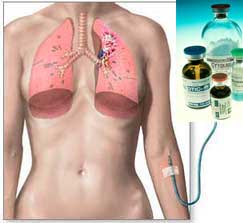Toxicity of chemotherapeutic
3,088 viewsChemotherapeutic agents do not act exclusively on tumor cells. The normal structures that renew themselves constantly, as bone marrow, hair and mucosa of the gut are also affected by the action of chemotherapy.

However, because normal cells have an expected recovery time, unlike the anaplastic cells, it is possible that chemotherapy is applied repeatedly, since the observed time interval required for the recovery of bone marrow and the lining of the gut. For this reason, chemotherapy is applied in periodic cycles.
The therapeutic and toxic effects of chemotherapy
The therapeutic and toxic effects of chemotherapy depend on the exposure time and plasma concentration of the drug. The toxicity varies for different tissues and depends on the drug used. Not all chemotherapy drugs cause side effects such as mielode pressure, alopecia and gastrointestinal changes (nausea, vomiting and diarrhea).
The dosages for elderly and disabled people should be smaller, initially, until it determines the degree of toxicity and reversibility of undesirable symptoms.
Every day, new drugs are available to oncologists in order to reduce the toxicity of chemotherapy (mesna, for example), maintenance chemotherapy (hematopoietic growth factors and antiemetics, for example), and intensification of chemotherapy (folinic acid for example). The bone marrow transplant has also allowed overcome the problem of hematologic toxicity of chemotherapy treatment as a limiting factor, along with consitutuir is in itself a method of treatment of hematologic malignancies. It should be noted, however, that most of these products and methods have been shown to be inaccessible to the majority of patients, most of their costs than for their availability (commercial, institutional or organ donors), in addition they also are accompanied by late effects not yet fully understood nor well controlled.
